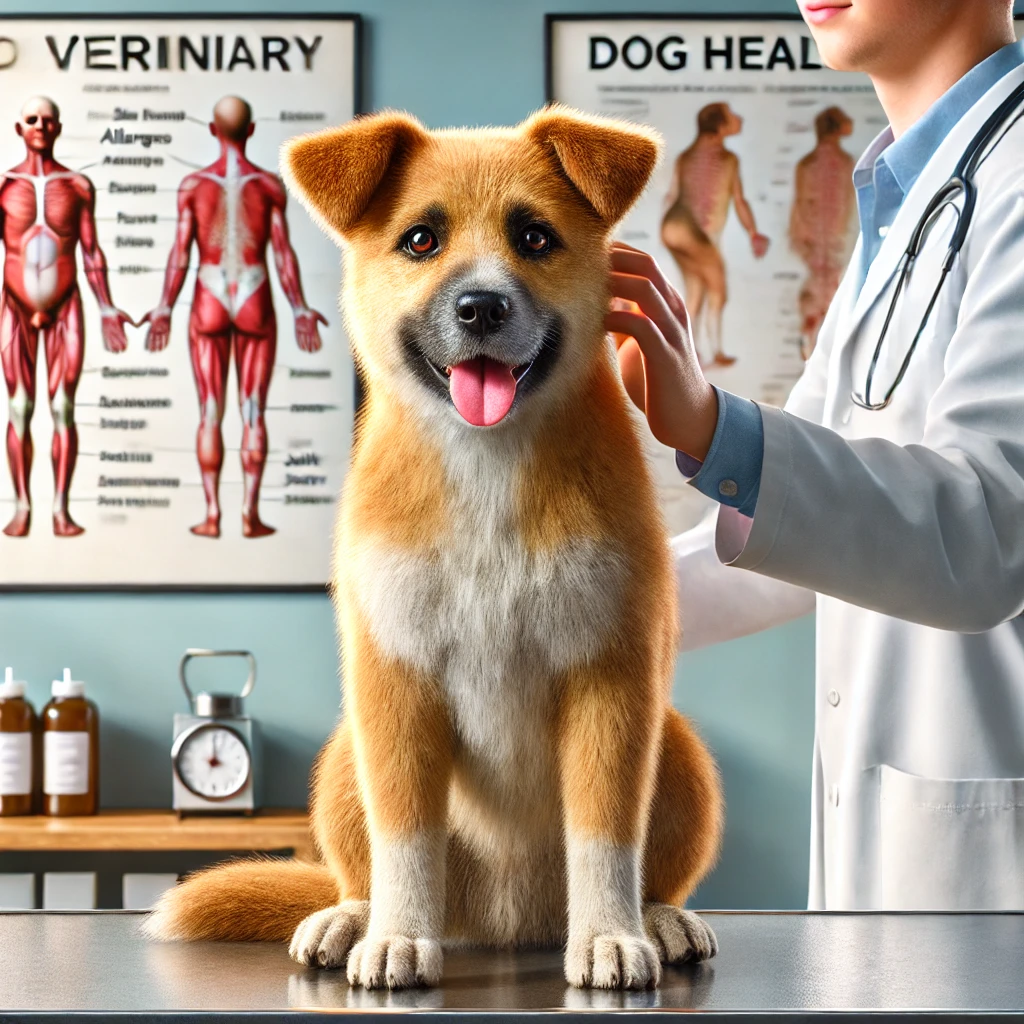For all pet loving parents, one of the greatest concerns is their dog health. But what probably matters when getting a dog is their health. Since our dogs cannot speak, it is important for us as dog owners to detect when something might be wrong and when everything looks fine.
We’re going to explain the signs of a healthy dog, as well as what would be considered warning signals in terms of health and ways you can make sure your best friend is living their life in full stride.
Table of Contents
1. Symptoms of a Healthy Dog
Your dog’s looks and physical shape can tell you a lot about their health. Below are the key pointers to observe: Shiny, Clean Coat: If a dog is in good health, it will have a shiny coat. Aggressive shedding, dry fur, or bald spots may also suggest health problems like allergic reactions to fleas, poor diet, or skin infections.
• Bright and Clear Eyes: His eyes should be bright, not bloodshot or cloudy with any discharge. A change in eye appearance can sometimes signal an infection, injury, or other health concern.
• Ears: The ears should be clean, smell fresh, and not have an odour. Ear mites or yeast infections are typically smelly. These preventions will make people stay away from ear infections, especially for those dogs that are prone to ear problems.
• Good Teeth and Gums: Your dog should have clean white teeth that don’t appear loose or broken. Healthy gums are pink and firm, not red or swollen. It can also be a sign of dental disease or other systemic health problems.
• Strong Nails: Healthy nails are strong but do not exceed the end of your finger. Your dog may have overgrown nails that are uncomfortable or brittle claws that tell you they need more grooming or nutrition.
• Proper Weight: A healthy dog will have a good combination of muscle and fat. You should be able to feel his ribs, but not easily. Obesity ranks as one of the major health concerns in dogs and is directly linked to other serious conditions such as diabetes, arthritis, and heart disease.
2. Behavioural Signs of a Healthy Dog
Your dog’s behaviour is also an indicator of their overall health besides their physical condition.
• Normal Energy Levels: A healthy dog should be energetic and show interest in playing, going for walks, or doing daily activities. If your dog is suddenly less active, it may be a sign of injury or illness.
• Healthy Appetite: A healthy dog has a good appetite and should eat regularly, 2-3 times each day. Rapid appetite changes or excessive drinking could be a sign of underlying health problems such as dental pain, kidney disease, or gastrointestinal disturbances.
• Healthy Sleep Habits: Although dogs sleep a lot, especially as they age, alterations in normal sleeping patterns can be an indication that your dog is uneasy, ill, or stressed.
• Consistent Bathroom Routine: Monitor your dog’s bathroom habits. Regular poops and clear, amber-coloured urine are signs of health. If stool changes frequency, consistency, or colour, it could indicate something wrong with either the digestive or urinary system.
• Emotional Stability: A healthy, happy dog will demonstrate balanced emotions. If the dog is overly anxious, aggressive, or clingy, it may point to stress or even disease.
3. Basic Dog Health Issues
Dogs are prone to a variety of health issues despite the best care. Some of the most common issues include:
• Obesity: Dogs are getting fatter, making it harder to exercise them, and obesity can lead to serious health issues. Exercise is necessary to prevent unwanted weight gain.
• Dental Disease: This is a common problem in dogs, and they might need their teeth cleaned more frequently. Routine brushing and dental visits can prevent these issues.
• Allergies: Common triggers include food, pollen, dust mites, and flea bites. Symptoms include itching, redness, and excessive licking.
• Arthritis: Larger breeds, in particular, can develop arthritis as they age. Symptoms include stiffness, hesitation to move, or limping. Joint supplements and maintaining a healthy weight can help manage arthritis.
• Parasites: Fleas, ticks, and worms plague the skin. Regular deworming and parasite prevention are essential.
• Ear Infections: Dogs with drooping ears or those that swim often may suffer from ear infections. Frequent ear cleaning and check-ups are crucial.
• Heart Disease: Older dogs, particularly smaller breeds, suffer from heart disease. Symptoms include coughing, difficulty breathing, and lethargy. Regular vet check-ups help manage heart issues.
4. How to Keep Your Dog Healthy
If you now know what a healthy dog looks like, how can you ensure your puppy is in good health? Here are some tips:
• Regular Veterinary Check-ups: Your dog should see the vet annually or biannually for vaccines, treatments, and a thorough check-up. Early detection and preventive measures can be administered by your vet.
• Quality, Balanced Diet: Feed your dog a high-quality, balanced diet. Consult your vet to choose the best food for your dog’s breed, age, and health issues.
• Physical Exercise: Regular exercise prevents obesity and keeps your dog’s muscles and joints healthy. Exercise also benefits your dog’s emotional well-being by providing mental stimulation.
• Grooming: Proper grooming ensures your dog looks good and protects against skin problems, mats, and infections. Clean your dog’s ears, trim their nails, and brush their teeth regularly.
• Parasite Prevention: Regular flea, tick, and worm prevention is essential. There are various treatments, so consult your vet for the best option.
• Mental Stimulation: A healthy mind is as important as a healthy body. Provide toys, playtime, and social interaction to keep your dog’s mind sharp and emotions balanced.
5. When to See a Vet
Even with the best care, dogs can develop health problems.
The following signs indicate it’s time to visit the vet:
• Sudden weight changes.
• Vomiting or diarrhea lasting over 24 hours.
• Breathing problems.
• Changes in appetite or drinking habits.
• Lameness or walking difficulties.
• Abnormal behaviour, such as hiding or aggression.
• Coughing or sneezing.
Your dog’s health is in your hands. Monitoring their physical appearance, behavior, and overall well-being will allow you to detect health issues early. Regular vet visits, a balanced diet, exercise, and love are the keys to a healthy dog. Stay observant and proactive, ensuring they live a long, happy life.




